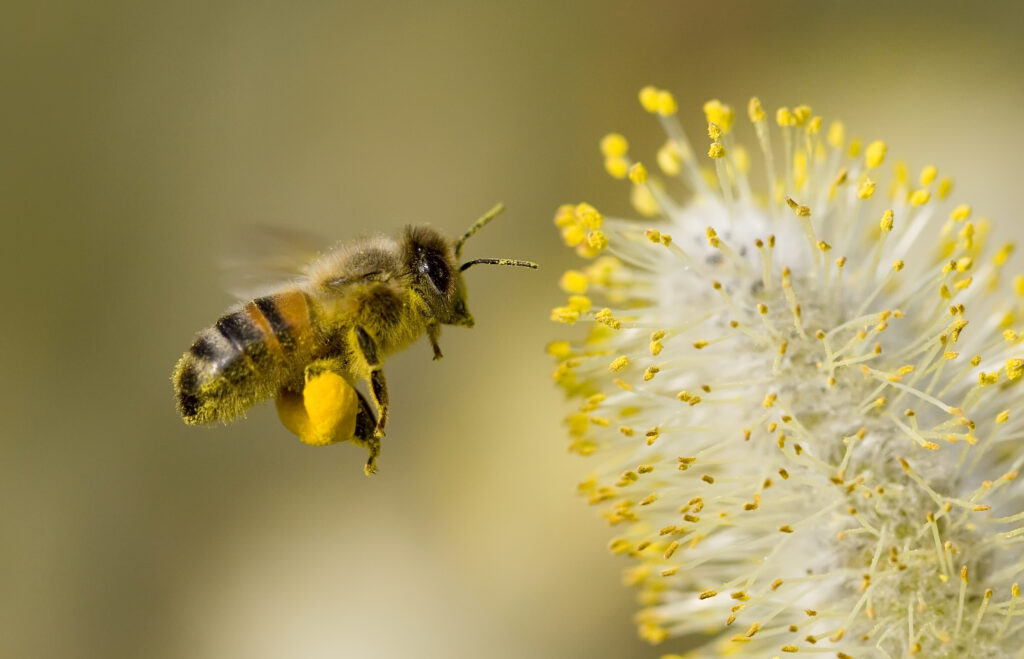
Table of Contents
Spring should feel like a fresh start—not a reason to hide indoors with itchy eyes and a box of tissues. If seasonal allergies have you bracing for impact every time flowers bloom, you’re not alone.
Millions experience allergy symptoms every spring, and while over-the-counter medications can help, they’re not your only option. The good news? There are natural, evidence-based strategies that can help reduce symptoms—without the drowsiness or dependency of conventional antihistamines.
In this post, we’ll explore what’s happening in your body when seasonal allergies flare, highlight science-backed supplements that may help, and introduce one promising peptide therapy that could change how we treat allergies in the future.

Dave Massey
What’s Actually Happening During Seasonal Allergies?
Seasonal allergies—also known as hay fever or allergic rhinitis—occur when your immune system mistakes harmless environmental substances, like pollen, for threats. In response, it produces antibodies called Immunoglobulin E (IgE), which trigger the release of histamine and other inflammatory compounds.
That’s what leads to the classic symptoms: sneezing, nasal congestion, itchy eyes, a runny nose, and sometimes fatigue or brain fog.
And the response can vary from person to person. Some may experience mild irritation, while others struggle with symptoms severe enough to interfere with sleep, concentration, and daily activities.
Supplements That May Help Soothe Allergy Symptoms
Many natural compounds have been studied for their role in calming the immune response and reducing inflammation during allergy season. While no supplement is a cure-all, the following options are backed by clinical and preclinical studies.
Butterbur: This herbal extract is one of the more well-researched natural remedies for allergies. It may reduce nasal congestion, sneezing, and itchy eyes. Some studies even suggest it works as well as certain antihistamines—without causing drowsiness.
Quercetin: Found in foods like apples, onions, and berries, quercetin is a natural antioxidant that stabilizes mast cells, the cells responsible for releasing histamine. As a result, studies show it may reduce symptom severity and frequency.
Probiotics: While probiotics are often associated with digestive health, they also help regulate immune function. Certain strains have been shown to reduce the frequency and intensity of allergy symptoms by improving the balance of beneficial bacteria in the gut.
Vitamin C: Known for its immune-supporting properties, vitamin C also acts as a natural antihistamine. It may help reduce inflammation and allergic responses, particularly when taken consistently during peak allergy seasons.
A Promising Peptide Therapy: Amlexanox
One of the most exciting developments in allergy science is the peptide Amlexanox. While originally used to treat mouth ulcers, newer research suggests it has immune-modulating and anti-inflammatory properties that may make it useful for managing allergic responses.
Amlexanox works by inhibiting specific signaling pathways involved in inflammation—particularly those that are overactive in allergy-prone individuals. One preclinical study found that it reduced airway inflammation and improved immune balance in models of allergy and asthma.
Although it’s not yet widely used in allergy care, Amlexanox represents a potential future alternative for those seeking targeted relief without the side effects of long-term antihistamine or steroid use. It’s a space worth watching—and may be especially relevant for those interested in longevity-aligned, systems-level immune support.
Lifestyle Adjustments for Relief
In addition to supplements and emerging therapies, your environment and daily habits play a critical role in managing symptoms. These simple, research-backed strategies can help reduce your overall allergen load:
Saline Nasal Rinse: Regular rinsing with saline can flush out pollen and other allergens, soothing irritated nasal passages.
Time Your Outdoor Exposure: Pollen counts tend to spike in the early morning and on windy days. Try to limit outdoor activity during those times, especially on high-pollen days.
Keep Your Space Clean: Use HEPA filters in your home, wash your clothes and hair after being outdoors, and avoid leaving windows open during high pollen seasons.
Hydrate + Recover: Staying well-hydrated helps thin mucus and supports immune function, while getting adequate sleep can reduce overall reactivity.
These small changes, practiced consistently, can lead to a noticeable reduction in symptoms over time.
Supporting Relief and Resilience—Now and in the Long Term
Managing allergies isn’t just about reducing symptoms in the short term. Chronic inflammation—especially if left unmanaged—can affect long-term immune regulation, respiratory health, and overall resilience.
What’s encouraging is that many of the strategies shown to ease allergy symptoms also support longer-term health outcomes. Quercetin, probiotics, and vitamin C are being studied not just for allergy relief, but for their role in immune modulation, oxidative stress reduction, and even metabolic support.
And emerging compounds like Amlexanox hold promise for targeting the root causes of inflammation, rather than just suppressing symptoms.
Spring allergies may be common—but they don’t have to ruin your season. With a thoughtful mix of natural remedies, science-backed supplements, environmental strategies, and innovative therapies, it’s possible to reduce symptoms and improve your overall resilience.